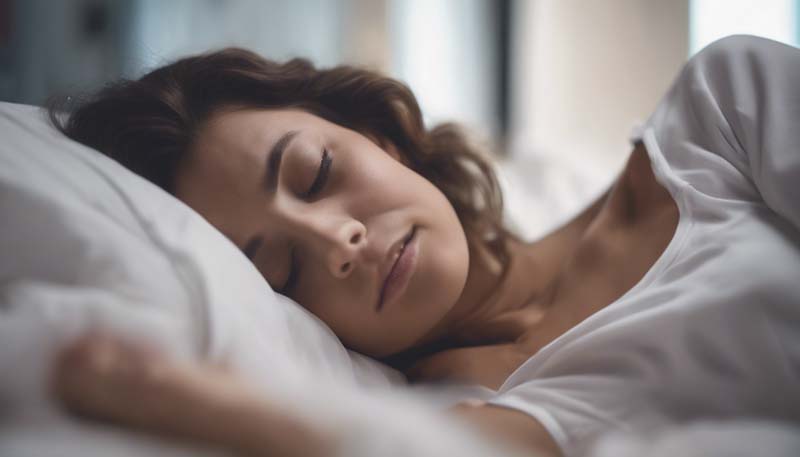The Impact of Technology on Sleep and Health
Introduction
The rapid advancement of technology has revolutionized the way we live, work, and communicate. While these innovations have brought about numerous benefits, they have also introduced new challenges to our health and well-being, particularly with regard to sleep. This article explores the various ways in which technology impacts our sleep and overall health, highlighting both the positive and negative aspects.
Positive Impact of Technology on Sleep and Health
1. Sleep Tracking and Analysis
Technology has made it easier than ever to monitor our sleep patterns. Devices like smartwatches and fitness trackers can record data on sleep duration, quality, and stages, providing valuable insights into our sleep habits. This information can help individuals and healthcare providers identify potential sleep disorders and develop personalized strategies to improve sleep.
2. Sleep Aid Applications
Smartphone apps and other digital platforms offer a range of tools to help users fall asleep faster and enhance sleep quality. These include white noise generators, guided meditations, and soothing music or soundscapes. Some apps even provide Cognitive Behavioral Therapy (CBT) for insomnia, a clinically proven method for improving sleep.
3. Telemedicine and Remote Healthcare
The rise of telemedicine has made it more convenient for individuals to consult with healthcare professionals about their sleep issues. This can lead to earlier diagnosis and treatment of sleep disorders, which in turn can improve overall health.
Advertisement
Negative Impact of Technology on Sleep and Health
1. Blue Light Exposure
One of the most significant health concerns associated with technology use is the exposure to blue light emitted by screens. Blue light can interfere with the production of melatonin, a hormone that regulates sleep-wake cycles. Prolonged exposure, especially before bedtime, can lead to sleep disturbances and insomnia.
2. Dependency on Technology for Sleep
While technology can aid sleep, there is a risk of becoming too reliant on devices and apps for sleep. This dependency can lead to a lack of natural sleep cues and make it harder to fall asleep without the aid of technology.
3. Distraction and Prolonged Wakefulness
The constant availability of information, entertainment, and social media can lead to extended screen time, which in turn can result in staying up later than intended. This can disrupt sleep schedules and contribute to sleep deprivation.
4. Impact on Mental Health
Excessive use of technology, particularly social media, has been linked to increased levels of stress, anxiety, and depression. These mental health issues can further exacerbate sleep problems and negatively affect overall health.
Strategies for Mitigating the Negative Impact of Technology on Sleep and Health
1. Establish a Sleep Schedule
Setting a consistent sleep schedule can help regulate the body's internal clock and improve sleep quality. It's important to create a routine that includes a regular bedtime and wake-up time, even on weekends.
2. Implement a Digital Detox
Taking breaks from technology, especially in the evening, can help reduce exposure to blue light and promote better sleep. Establishing a no-device rule at least an hour before bedtime can be beneficial.
3. Use Technology Wisely
Choosing the right technology and using it appropriately can minimize its negative impact on sleep. For example, using a blue light filter on screens, setting devices to "night mode," or using apps designed to gradually wind down screen brightness can all help.
4. Prioritize Sleep Hygiene
Creating a sleep-friendly environment is crucial. This includes keeping the bedroom dark, cool, and quiet, as well as investing in a comfortable mattress and pillows. Additionally, engaging in relaxing activities before bed, such as reading a book or taking a warm bath, can help signal to the body that it's time to sleep.

Conclusion
Technology has both positive and negative implications for sleep and health. By being mindful of its use, particularly in the hours leading up to bedtime, and implementing strategies to promote good sleep hygiene, individuals can mitigate the adverse effects of technology and enjoy the benefits it has to offer.
Comment Form